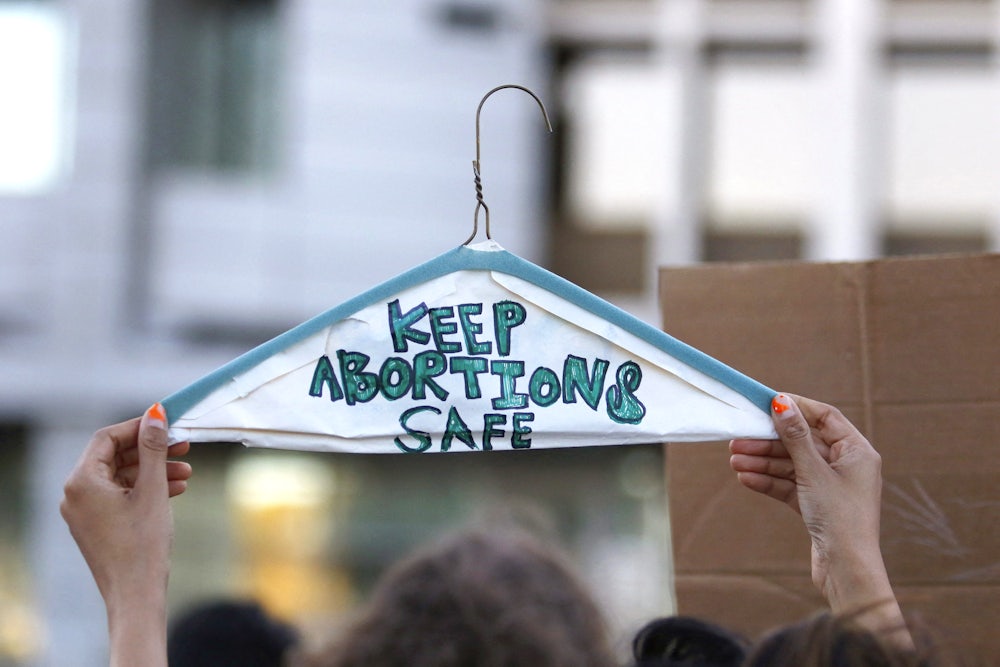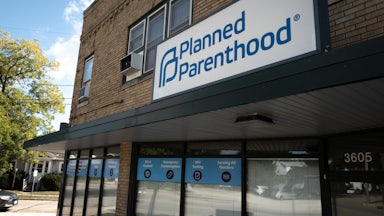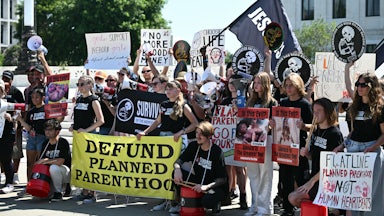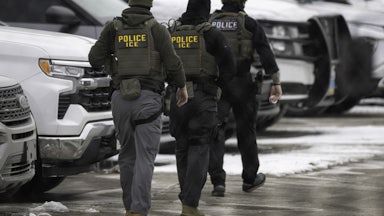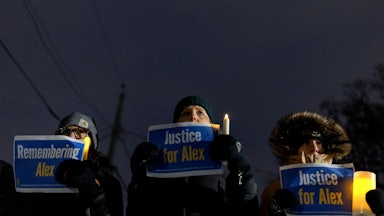Last fall, The Washington Post highlighted the horrific case of a Nevada woman who was arrested in 2018 after having a stillbirth. The woman, Patience Frazier, used drugs and didn’t respond to her stillbirth in a way that was acceptable to a local cop who knew her and judged her for parenting in poverty. She was charged under a 1911 law that prohibits taking drugs or substances with the intent to terminate a pregnancy after 24 weeks’ gestation.
Nevada is the only U.S. state that explicitly criminalizes women for ending their pregnancies; people who violate the law can be charged with manslaughter, a felony with a sentence of one to 10 years in prison. (Prosecutors in other states can and do charge women under other statutes, such as concealing a birth.) Frazier served two years in jail before being released on appeal in 2021. But her case is still open and prosecutors could decide to retry her.
In January, Democratic Nevada state Senator Rochelle Nguyen, who is reportedly friendly with Frazier’s lawyer, introduced a bill to repeal the century-old law. Wiping it off the books would protect Frazier and others like her in the future. But the proposal, Senate Bill 139, got no co-sponsors and never received a hearing.
Multiple sources say that state reproductive rights groups decided not to lobby for the bill because they claimed doing so could impact final passage of a constitutional amendment to codify abortion access. That ballot measure, known as Question 6, would enshrine in the state constitution the right to abortion until fetal viability, which is different for every pregnancy but thought to occur around 24 weeks. It’s a citizen-initiated amendment spearheaded by Nevadans for Reproductive Freedom, a group led by the head of Planned Parenthood Nevada Votes. Question 6 passed comfortably in November with 64 percent, but voters have to approve it again next year due to a quirk in the state process.
According to one source familiar with the situation, Planned Parenthood Nevada Votes had a meeting last summer with Senate Majority Leader Nicole Cannizzaro and Speaker of the Assembly Steve Yeager, both of whom are Democrats, where attendees agreed they wanted a “quiet session” on reproductive rights. That is to say, before Nguyen even introduced the bill, leaders had effectively killed it for her.
This posture did not change, even after Donald Trump won the election. “They had ample opportunity to decide to create protections for people and change some of the old laws, and they just decided they weren’t going to,” said the source, who, like other people in this story, didn’t want to use their name for fear of professional retaliation.
A group of activists who supported S.B. 139, and who didn’t know about that summer agreement, wondered what was happening with the repeal effort. In a late-March meeting, Nguyen reportedly told them that the bill didn’t have enough votes to advance. One source at the meeting recalled Nguyen saying, “We don’t want this to impact Question 6” and that she needed the support of groups like Planned Parenthood Nevada Votes to get reelected. (The state chapter of Reproductive Freedom for All, formerly known as NARAL, is also part of the coalition for the citizen-led ballot measure but is letting Planned Parenthood take the lead on legislation.)
“Here we are in this time where Democrats really need to be standing up. Why are we cowering?” this person said. They added that they “can’t understand the logic” of how erasing the old law would affect passage of the amendment. “People being like, ‘Yeah, they repealed an ancient statute,’ that’s not going to be a reason people aren’t going to vote [for Question 6],” they said.
Another source present at the March meeting said Nguyen claimed that other Democrats were wary of taking what they considered a tough vote due to past anti-abortion advocacy, including mailers, that made races more difficult. An additional fact not mentioned but hanging over conversations is that Republican Governor Joe Lombardo could veto the bill. Democrats control both chambers but don’t have a veto-proof majority. Still, the legislature’s stated pro-choice stance feels hypocritical to this person. “We have a majority that has affirmed being for reproductive rights, for abortion access, and we get a bill that would do a little bit of decriminalization,” the second person said, “and that bill doesn’t even get a hearing.”
The first person recalled that representatives from Planned Parenthood Votes Nevada said they didn’t support repealing the 1911 law in the lead-up to the final passage of Question 6 because the old law dealt with abortions later in pregnancy, a topic major groups tend to avoid. “I have heard them say that ‘we don’t want to touch the 24 weeks,’” the source said. This is a strange justification to some advocates, because repealing the statute regarding self-managed abortions after 24 weeks wouldn’t change anything about care that’s available in clinics. Providers could not suddenly offer abortions after 24 weeks. “I’m not understanding how that is a real argument for not passing [S.B. 139],” they said. “It just doesn’t add up. It doesn’t make sense to me.”
Lawmakers could have taken another route. Cannizzaro and Nguyen are both primary sponsors of a legislature-referred constitutional amendment with language that’s more protective of reproductive rights than Question 6. The proposal, Senate Joint Resolution 7, would codify the right to birth control and miscarriage care, alongside abortion until viability. SJR 7 also bars the state from prosecuting people for their pregnancy outcomes—though it would not explicitly repeal the 1911 law. (That would have to be worked out in court.) It passed in the previous session but has not advanced this year, meaning it will not go to voters next fall.
The New Republic contacted Planned Parenthood Nevada Votes for comment about the summer 2024 meeting and whether it encouraged lawmakers to have a quiet session in the interest of passing Question 6 next year, as well as whether it declined to support the repeal bill because the law in question concerns abortion after 24 weeks. We have yet to receive a response.
When reached for comment about the summer meeting, a spokesperson for Cannizzaro said the majority leader does meet frequently with reproductive rights organizations before and during the session to discuss priorities. “Based on those priorities,” the spokesperson said, “we have moved forward a robust reproductive health agenda this session, including legal protections and expanded coverage requirements for IVF and infertility care, better protections for birth control access, and increased protections for prescribers of mifepristone and misoprostol.”
Regarding the Senate-led constitutional amendment that failed to advance, the spokesperson said Cannizzaro and other advocates “decided that enshrining a constitutional right to abortion was the top priority” and that, since Question 6 would already be on the 2026 ballot, “it was ultimately better not to have two competing reproductive rights measures.” (Cannizzaro is rumored to be running for attorney general next year.)
Importantly, the abortion amendment going to voters next year would not prevent people like Frazier from being arrested, because it only protects care overseen by a “qualified health care practitioner” and up to 24 weeks. So leaving this law intact is a danger to Nevadans. “This is not the time to have this on the books,” the first person said. “I do not trust rural sheriffs.”
Krystal Petersen, co-chair of the University of Nevada Boyd Law School chapter of If/When/How Lawyering for Reproductive Justice, is part of a group that supports the repeal of this law. Petersen said the choice whether to investigate and prosecute people suspected of having an abortion is up to elected sheriffs and district attorneys. That may not be a problem in the counties home to Las Vegas or Reno, but it could be an issue in more rural areas, like Winnemucca, where Frazier lived at the time. “We do not just protect two counties in this state, we protect every Nevada resident,” she said. “We will keep fighting until S.B. 139—or something like it—is implemented.”
While the repeal bill is technically dead for the session, Democratic leadership could choose to rescue it before the session ends on Monday, June 2. The legislature won’t meet again until January 2027, and if Democrats take no action, there could be more people thrown in jail.
“When I tell people [about the 1911 law], they look at me like I’m nuts. I say, ‘No, for real, this is on the books here, and it’s the only place that makes it a felony,’” the first person said. “What is going on? And why aren’t the Democrats doing anything?”
As of the time of publication, neither Senator Nguyen nor Speaker Yeager had responded to requests for comment.
Failure to repeal the 100-year-old statute threatens not only Frazier specifically but anyone who loses their pregnancy after 24 weeks, said Garin Marschall, co-founder of Patient Forward, an organization that advocates for people who need abortions later in pregnancy. “It invites the state to investigate every stillbirth because it could potentially be a violation of the law,” said Marschall, who runs the organization with his wife, Erika; she had a third-trimester abortion in 2016.
That law is especially dangerous in combination with the viability limit in Question 6. “If there’s no care available in the state after 24 weeks because of your ballot measure, what are people supposed to do? Some people can get out of the state, but some people can’t,” he said. “I really don’t think people donating to abortion rights organizations and campaigns want people going to jail for abortions and miscarriages and stillbirths.”
Still, states don’t need to have explicit laws criminalizing abortion-seekers like Nevada’s in order to lock people up. To Patient Forward and other advocates critical of enshrining the fetal viability line in state constitutions, ballot measures that only protect abortion until 24 weeks give governments too much power. “If you draw a line in the law, the state is going to police that line,” he said. “That leads to surveilling, investigating, and ultimately punishing pregnant people.”
Not every case ends in a conviction, but every investigation causes harm. “We know Patience Frazier’s name, a lot of other people’s names that we shouldn’t know,” he said. That includes Brittany Watts, an Ohio woman who was investigated after having a miscarriage and charged with abuse of a corpse. (A grand jury declined to indict Watts, and she is now suing a local hospital and police.)
“All of those [cases] are problematic,” he said. “And all of those are something that we—whether you’re in the abortion rights, health, or justice movement—should be working to stop.”
